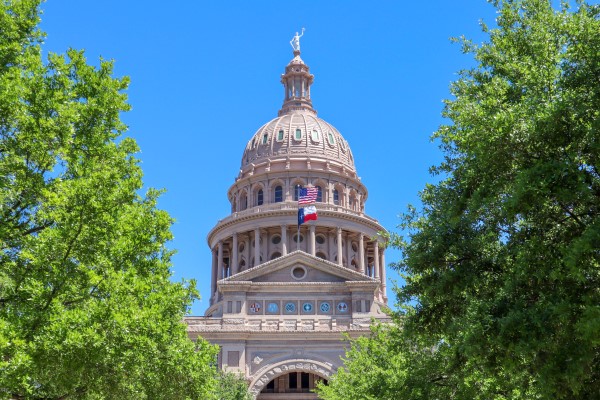86th Legislative Session Summary
Published Jun 20, 2019 by Taylor Landin
The 86th Texas Legislative Session was a success for the Partnership, the Houston business community and the broader Greater Houston region. This session was characterized by strong leadership from Governor Greg Abbott, Lt. Governor Dan Patrick and first-term House Speaker Dennis Bonnen. Their leadership focused the Legislature on addressing the most pressing needs facing Texas, which closely aligned with the Partnership’s priorities.
Through the efforts of the Partnership’s Board of Directors and our Public Policy Advisory Committees, we identified our top executive priorities based on the issues’ importance to Houston and the Partnership’s ability to make meaningful impact.
The Partnership focused on two initiatives critical to the advancement of the region’s economic competitiveness: improving the state’s flood resilience and supporting comprehensive public school finance reform. Thanks to consistent engagement from the Partnership, strong leadership from our statewide leaders and commitment from our regional delegation, we are proud to report success in each of our top priority areas.
FLOOD RESILIENCE - Senate Bill 7 Signed by Governor Abbott
The passage of flood resilience legislation was a major accomplishment. The Partnership built a data-driven case for the state to fund Hurricane Harvey recovery and establish a role in future flood mitigation resulting in $2 billion in funding for both of these areas. Importantly, this legislation marks the first time the state will have a significant role in funding flood mitigation infrastructure.
In total, the Legislature appropriated $2 billion towards Hurricane Harvey recovery and future flood mitigation. The Texas Infrastructure Resiliency Fund received an appropriation of $638 million to cover unanticipated FEMA local matching requirements. $172 million will remain in the fund to make future appropriations or to implement an initial state flood plan. An appropriation of $47 million was made primarily to update flood risk maps throughout the state.
In addition, the Texas Water Development Board received an appropriation of $793 million for future flood infrastructure projects. These funds will most likely flow through the Flood Infrastructure Fund following passage by voters of a constitutional amendment this November. The General Land Office was also appropriated $200 million for costs associated with infrastructure projects being conducted by the U.S. Army Corps of Engineers, and the Soil and Water Conservation Board was appropriated $150 million for dam infrastructure projects throughout the state.
This commitment of significant state funding will help local communities and make Texas more resilient.
PUBLIC SCHOOL FINANCE REFORM – House Bill 3 Signed by Governor Abbott
The Legislature passed the most consequential public school finance reform since 1993. House Bill 3, authored by House Public Education Committee Chairman Dan Huberty (R-Kingwood) and sponsored by Senate Education Committee Chairman Larry Taylor (R-Friendswood), delivers transformational solutions, passed without a court order, and reflects the Partnership's principles for school finance reform:
- Prioritizing formula funding weights for economically-disadvantaged and English Language Learner students.
- Funding early education with an emphasis on programs that increase the reading proficiency of students by third grade.
- Increasing pay for the best teachers and incentivizing the best teachers to teach in the lowest performing schools.
- Equitably reducing the burden of recapture.
- Increasing the state’s share of education funding.
House Bill 3 dramatically reduces statewide recapture payments over the next biennium. Statewide recapture is reduced by $3.6 billion, a 47 percent reduction. Two school districts in our region, Houston ISD and Spring Branch ISD pay recapture. HB 3 is projected to reduce Spring Branch ISD’s recapture payment in 2020 from $96.9 million to $26.9 million. Houston ISD’s recapture payment in 2020 is projected to be reduced from $308.6 million to $0.
It is important to note that school district property tax reform is directly connected to the school finance reform efforts in House Bill 3. The legislation compresses local school district property taxes over a two-year period and establishes a school district revenue cap of 2.5 percent. These provisions help to reduce the challenge of funding public schools with local revenue, while increasing the state’s share of funding public education.
This historic reform legislation increases the state’s share of funding public education from 38 percent to 45 percent and reduces the burdensome cost of recapture. Houston-area students will directly benefit from the funding allocated to proven programs directed at the highest need student populations so that students have an opportunity to graduate fully prepared to enter a twenty-first century workforce.
The Partnership also engaged in workforce development policy at the state legislature for the first time, and this work will continue into the interim. Other issues important to the Houston business community – the preservation of state economic development programs, enhancement of higher education and creation of new mental health programs – were also approved with leadership from Houston-area legislators
This was a tremendous session, and we thank the Board of Directors, Public Policy Advisory Committees, members, staff and stakeholders for your engagement prior-to and during session. For further details on outcomes of the 86th Legislative Session, click here. For more information on the Partnership’s public policy efforts, click here.
 The Houston Report
The Houston Report


















